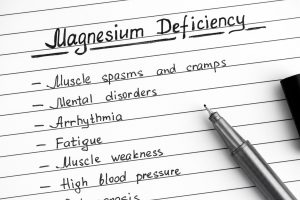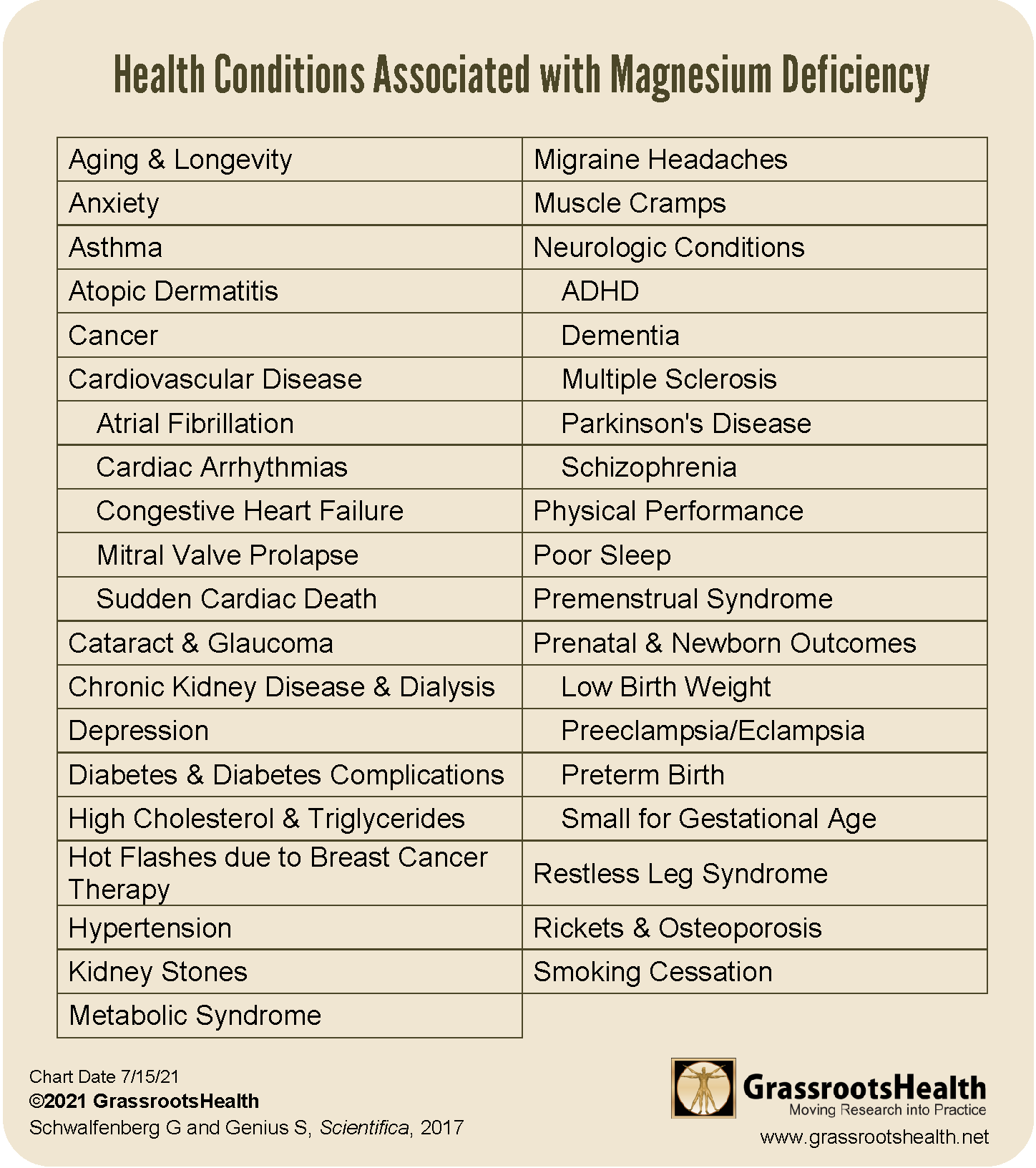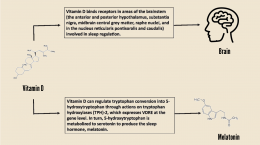Published on July 19, 2021
An estimated 42% of young adults have ongoing magnesium deficiency, which could lead to several health complaints
 Magnesium is the fourth most abundant mineral in the human body. It is involved in over 300 enzymatic reactions and is a necessary component for energy metabolism, muscle function, blood pressure regulation, insulin metabolism, cardiovascular function, nerve transmission, neuromuscular contraction and more. Because of this widespread need, chronic magnesium deficiency can lead to general feelings of unwellness and contribute to the development of many different diseases.
Magnesium is the fourth most abundant mineral in the human body. It is involved in over 300 enzymatic reactions and is a necessary component for energy metabolism, muscle function, blood pressure regulation, insulin metabolism, cardiovascular function, nerve transmission, neuromuscular contraction and more. Because of this widespread need, chronic magnesium deficiency can lead to general feelings of unwellness and contribute to the development of many different diseases.
Below is a summary of health conditions that low magnesium intake and levels may contribute to, based on a review by Schwalfenberg and Genius, which outlines the published evidence supporting the use of magnesium in the prevention and treatment of many common health complaints.
Clinical Symptoms and Signs of Magnesium Deficiency
The effects of low magnesium can include everything from fatigue and loss of appetite, to tremors and muscle cramps. Severe deficiency can cause cardiac arrhythmias. The combination of a healthy diet with supplementation can alleviate and, in some cases, eradicate most health issues related to low magnesium levels.
The following symptoms and signs can be indications of magnesium deficiency, although as noted by the authors, any clinical signs of deficiency are usually totally absent.
- Neuromuscular: weakness, tremor, twitching (muscle fasciculation), difficulty swallowing (dysphagia), facial twitching as a reaction to facial nerve tapping (positive Chvostek’s sign), application of a pressure cuff to transiently block off the main artery in the arm resulting in spasm of muscles of the hand and forearm (positive Trousseau’s sign)
- Cardiac: arrhythmias, changes in heart function that are detected on ECG
- Central Nervous System: depression, agitation, psychosis, uncontrolled movements of the eye (nystagmus), seizures
Health Conditions Associated with Magnesium Deficiency
The following health conditions have been associated with magnesium deficiency:
Asthma – magnesium may help reduce bronchospasm and improve symptoms of breathlessness, reducing the severity of acute asthma attacks and the need for hospitalization
Rickets and Osteoporosis (with vitamin D) – magnesium deficiency can prevent the conversion of vitamin D, which is necessary for calcium absorption and metabolism, and normal parathyroid hormone function, all of which control the build-up and break-down of bone
Prenatal Outcomes – shown to help ameliorate muscle cramping during pregnancy, decrease the frequency of preterm births, low birth weight and small for gestational age newborns, and used as a treatment for preeclampsia/eclampsia. Magnesium has also been associated with metabolic syndrome for the child later in life.
Migraine Headaches – regarded as a strongly recommended treatment by a Chochrane review, magnesium has been shown to reduce the frequency, duration, and intensity of migraines
Metabolic Syndrome, Diabetes, and Diabetic Complications – magnesium intake has been inversely associated with fasting glucose, insulin levels, insulin resistance, and the incidence of type 2 diabetes, suggesting that a diet rich in magnesium may be important in preventing metabolic syndrome and diabetes. Magnesium has also been shown to improve peripheral neuropathy and depression in diabetics, and lower levels have been associated with more rapid renal decline.
Depression and Anxiety – magnesium is necessary for the conversion of tryptophan to serotonin, which is a neurotransmitter important to mental health and mood. Magnesium has been successfully used as a treatment for depression, and magnesium intake has been inversely correlated with anxiety and depression.
Sleep and Restless Leg Syndrome – research investigating magnesium supplementation has shown significant improvements in insomnia severity, sleep time, sleep efficiency, sleep onset latency, and the regulation of sleep related hormones. It has also been shown to decrease periodic limb movements during sleep.
Smoking Cessation – studies have shown magnesium supplementation may help decrease the number of cigarettes smoked and help with smoking cessation
Cancer – magnesium intake appears to be inversely related to the risk of colorectal cancer, and may also play a role in reducing the risk of breast and other cancers
Renal Calculi (Kidney Stones) – magnesium taken with meals binds to oxalates in the intestinal tract, reducing oxalate absorption and accrual in the body and leading to a diminished risk of stone formation
Cardiovascular Health, Hypertension, and Sudden Cardiac Death – magnesium supplementation has been shown to improve vascular and endothelial function, acts as a natural calcium channel blocker, increases nitric oxide, and induces vasodilation. Higher magnesium intake has been associated with a reduced risk of sudden cardiac death and improved blood pressure.
Atrial Fibrillation – magnesium has been found helpful in rapidly resolving atrial fibrillation; low magnesium has been associated with increased risk of developing atrial fibrillation
Cataract and Glaucoma – magnesium is needed to maintain homeostasis of the lens within the eye, and plays an important role in ocular blood flow and ganglion cell maintenance. Supplementation with magnesium may be of therapeutic value for both the onset and progression of cataracts and glaucoma.
Stress, Aging and Longevity – the need for magnesium is increased when the body experiences any type of stress, including physical stress (due to heat, cold, exertion, trauma, or surgery), emotional stress (excitement, anxiety, or depression) and dyspnea (difficulty breathing). Magnesium deficiency may increase the risk of cardiovascular damage and damage to the DNA due to oxidative stress, which could contribute to age-related diseases.
Physical Performance – magnesium supplementation has been shown to result in increased physical performance; grip strength, lower leg muscle power, knee extension torque, and ankle extension isometric strength have all been correlated with higher magnesium
Neurologic Conditions – magnesium intake and levels have been related to attention and hyperactivity among children with ADHD, fatigue among multiple sclerosis patients, memory in patients with dementia, schizophrenia, and Parkinson’s disease
Other conditions in which magnesium supplementation has shown to be beneficial include
- Cardiac Arrhythmias
- Mitral Valve Prolapse (improved symptoms, complete remission)
- Congestive Heart Failure (improved symptoms and survival outcomes)
- Smoking Cessation
- Chronic Kidney Disease, Dialysis
- Dyslipidemia (regulating blood lipids)
- Premenstrual Syndrome (less pain, mood changes)
- Breast Cancer Treatment Side Effects (reduction in hot flushes, fatigue, sweating)
- Atopic Dermatitis
Make Sure You are Getting Enough Magnesium
Up to 60% of the US population is estimated to be deficient in magnesium. Deficient magnesium levels can be due to insufficient magnesium in the diet, as well as problems with kidney function, alcoholism, and the use of diuretics and proton pump inhibitors.
The dried blood spot magnesium test measures the amount of magnesium within whole blood, and is a better indicator of magnesium status than the serum magnesium test. Measure your level of magnesium by adding it as a test option to your Custom Test Kit with vitamin D.
Measure Your Level of Vitamin D, Magnesium, and Other Important Nutrients
 Having and maintaining healthy vitamin D levels and other nutrient levels can help improve your health now and for your future. Choose which to measure, such as your vitamin D, omega-3s, and essential minerals including magnesium and zinc, by creating your custom home test kit today. Take steps to improve the status of each of these measurements to benefit your overall health. You can also track your own intakes, symptoms and results to see what works best for YOU.
Having and maintaining healthy vitamin D levels and other nutrient levels can help improve your health now and for your future. Choose which to measure, such as your vitamin D, omega-3s, and essential minerals including magnesium and zinc, by creating your custom home test kit today. Take steps to improve the status of each of these measurements to benefit your overall health. You can also track your own intakes, symptoms and results to see what works best for YOU.
Enroll and test your levels today, learn what steps to take to improve your status of vitamin D (see below) and other nutrients and blood markers, and take action! By enrolling in the GrassrootsHealth projects, you are not only contributing valuable information to everyone, you are also gaining knowledge about how you could improve your own health through measuring and tracking your nutrient status, and educating yourself on how to improve it.






